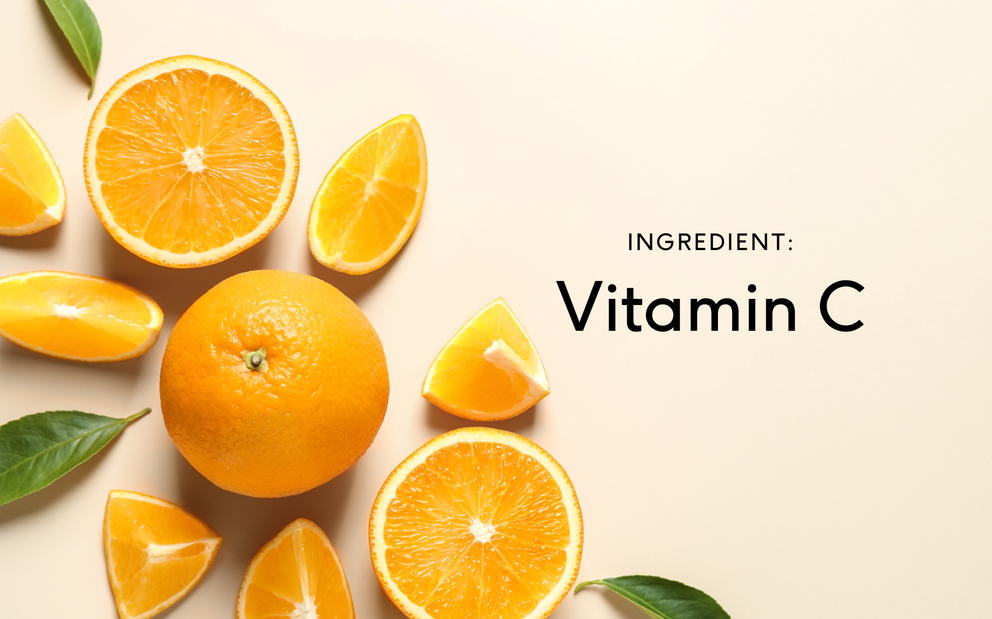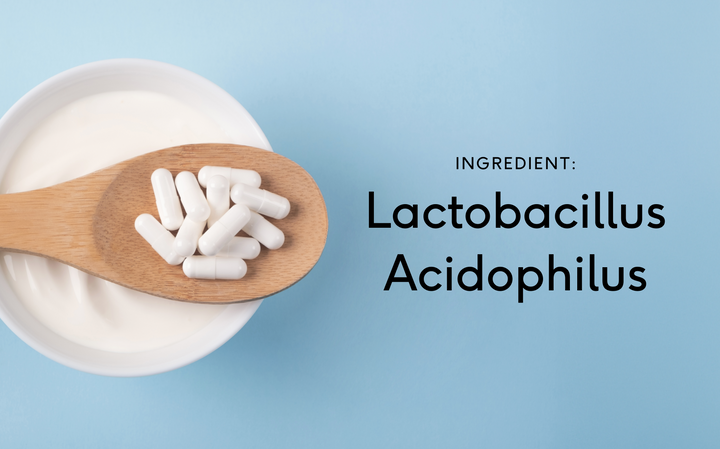Learn About Vitamin C in 5 Minutes
Table of contents

What is Vitamin C?
Vitamin C, chemically known as ascorbic acid, is one of the most important essential vitamins and minerals. This nutrient has potent antioxidant activity, and you can get scurvy if you don’t consume enough vitamin C.
- Promotes immune health to get you on your feet faster
- Improves blood flow and cardiovascular health
- Makes your nervous system healthier and sharpens your mind
- Gets toxic metals out of your body to boost your self-healing ability
- Easy to digest with or without food
Why we love vitamin C
Vitamin C doesn’t just keep scurvy away. It’s true that vitamin C deficiency can cause this scourge of the high seas, but vitamin C’s benefits truly shine in the neurological department. Since this essential vitamin is an antioxidant, it protects your brain from oxidative stress, and it helps your other tissues fight back against free radicals too.
Vitamin C keeps atherosclerosis at bay, so you can enjoy that omelet worry-free as long as you take your daily “C.” We all know that this vitamin’s immune-boosting effects have been overhyped, but vitamin C does help you get over colds faster, and it may even help you get rid of those nasty toxic metals that build up in your organ tissues.
Let’s look at the details
L-ascorbic acid is the chemical name for vitamin C. Scientists around the world have found that this substance has amazing neurological, cardiovascular, immunological, and other benefits.
Neurological Benefits
The neurological benefits of vitamin C are profound and well-researched. This substance stimulates the production of a variety of enzymes involved in cognition. While the brain naturally produces these enzymes, it fails to produce them if you have a vitamin C deficiency.
As an antioxidant, vitamin C protects brain cells from the harmful effects of excessive stimulation. Oxidative stress leads to cell death, and vitamin C protects against oxidative stress in animal models.
Research has found that potassium channels play a role in depression. Vitamin C blocks potassium channels, which has antidepressive effects. A longitudinal study found that people who consumed adequate amounts of vitamin C were less likely to develop dementia. Since vitamin C is an antioxidant, it may also reduce the risk of Alzheimer’s disease.
Cardiovascular Benefits
Like other antioxidants, vitamin C appears to improve blood flow. Vitamin C deficiency increases your risk of atherosclerosis, so supplementing with vitamin C reduces your risk of developing this condition.
Immunological Benefits
While vitamin C doesn’t prevent you from getting sick, it does reduce the average duration of cold symptoms. Vitamin C may also be able to destroy certain types of harmful bacteria.
Research shows that Vitamin C helps to reduce the duration and severity of symptoms associated with the common cold. That's why we've included 250mg of Vitamin C in Feel Immunity, 313% of your daily recommended intake.
Other Benefits
Vitamin C supplementation reduces bone loss in animal models. This vitamin also appears to help the body eliminate toxic metals like mercury, lead, and cadmium. Collagen is an important part of your cartilage, skin, and other tissues, and vitamin C supplementation increases collagen production.
Vitamin C contributes to essential collagen synthesis for joints and bones; Feel Joints includes 200mg of Vitamin C, 250% of your daily recommended intake.
Is vitamin C water-soluble or fat-soluble?
Vitamin C is one of the few vitamins that are water-soluble. While fat-soluble vitamins are stored in your body, water-soluble vitamins quickly pass through your digestive system, so you need to replace them frequently.
Where can vitamin C be found naturally? Common sources of vitamin C:
This nutrient is present to some degree in most fruits and vegetables. However, some types of fresh produce have more vitamin C than others. Contrary to popular belief, many fruits and vegetables contain more vitamin C than is present in oranges and other citrus fruits.
5 foods/drinks containing vitamin C
1. Guava: 419% DV per cup
2. Bell peppers: 211% DV per cup
3. Kiwi 185% DV per cup
4. Strawberries 108% DV per cup
5. Oranges 106% DV per cup
What is the recommended daily intake for vitamin C?
According to the Office of Dietary Supplements, which is part of the National Institutes of Health, the recommended daily amount (RDA) of vitamin C is 75mg in women and 90mg in men. This RDA increases to 85mg for pregnant women and 120mg in breastfeeding women.
Vitamin C is vital for both mum and baby during pregnancy. Feel Pregnancy includes 100mg of Vitamin C, essential for supporting bone and teeth development.
What to consume to get a full daily dose of vitamin C?
Guava - around ¼ cup
Bell peppers - around ½ cup
Kiwi - around ½ cup
Strawberries - around 1 cup
Oranges - around 1 cup
Can you absorb enough of vitamin C from food?
It’s certainly possible to absorb enough vitamin C from the food you eat. However, active lifestyles often make it hard to consume the amount of fresh fruit you need to stave off vitamin C deficiency. If you’re breastfeeding, for instance, a single orange per day won’t fulfil your daily vitamin C intake needs, and unless you go out of your way to consume plenty of vitamin C-rich foods every day, it’s easy to become deficient no matter what age you may be.
Why is vitamin C necessary for your body?
Vitamin C is necessary for tissue production and maintenance. This potent antioxidant plays a key role in generating collagen, which is the most prevalent protein in your body. Without proper levels of collagen, your skin will start to sag, and your chances of developing joint issues increases.
This nutrient is also necessary for the absorption of iron, and it is involved in regulating multiple immune processes. As an antioxidant, vitamin C reduces inflammation, which may reduce your risk of disease in general. In addition, vitamin C plays a role in healing both external and internal wounds.
Functions of vitamin C
Antioxidant: Your body needs vitamin C’s antioxidant functions to reduce levels of free radicals and improve your overall resistance to disease.
Potassium channel blocker: Vitamin C appears to act as a potassium channel blocker, which may reduce the symptoms of depression.
Immune modulator: It’s a myth that vitamin C cures colds, but this nutrient does appear to reduce the duration of cold symptoms.
Cardiovascular modulator: Vitamin C reduces your chances of developing atherosclerosis and other cardiovascular conditions.
Symptoms of vitamin C deficiency
Bad Complexion
Since vitamin C is intimately involved in collagen production, your skin health will decrease if you become deficient in this essential nutrient. Vitamin C deficiency can result in red, rough, or bumpy skin, and deficiency in this vitamin can also cause your skin to age prematurely.
Unhealthy Hair Follicles
When you’re deficient in vitamin C, the hair follicles all over your body become red and inflamed. This condition is called perifollicular haemorrhage, and it is a common sign of advanced vitamin C deficiency. Your body hairs also become corkscrew-shaped and fall out easily if you become deficient in this nutrient.
Slow Healing
You’ll bruise easier if you’re deficient in vitamin C, and your bruises will take longer to heal. Additionally, vitamin C deficiency causes slow wound healing, and it can even cause old wounds to reopen. Plus, deficiency in this nutrient also increases your chances of developing open sores like leg ulcers.
How long do you need to take vitamin C to start experiencing its benefits?
Supplementing with vitamin C may lead to positive benefits within 1-2 days.
Consistency is key and our research recommends taking your Feel supplements for at least 3 months to allow your body to adjust and provide the desired benefits.
How long does it take for your body to digest/absorb vitamin C?
As long as you consume close to your recommended daily amount of vitamin C, your body will absorb approximately 80% of your vitamin C intake within 24 hours. If your intake levels fall significantly below your RDA, however, your intake levels can slow to as little as 50% absorption over a 24-hour period.
How long does vitamin C stay in your body after you take it?
As a water-soluble vitamin, vitamin C does not remain in your body very long. In most cases, this essential nutrient is excreted within 24 hours, but the amount of time vitamin C stays in your system depends on your individual circumstances and medical history.
Is vitamin C an antioxidant?
Yes, vitamin C is an antioxidant, and it is highly potent. Antioxidants remove free radicals from your system, which promotes homeostasis and proper tissue growth and regeneration.
Can you overdose on vitamin C? What are the effects?
It is technically possible to overdose on vitamin C, but you would need to ingest upward of 2000mg within a 24-hour period to experience negative effects. Since vitamin C is processed out of the body so quickly, it is extremely hard to overdose on this nutrient.
Common side effects of vitamin C overdose include nausea and diarrhoea as your body processes out the excess nutrient levels. While overdosing on vitamin C is rare, it is still important to avoid exceeding your RDA of this nutrient to avoid unpleasant symptoms.
Does vitamin C dissolve, flush out, or build up in the body?
Vitamin C is not stored in your body. It is rapidly flushed out of your system after it is absorbed.
Can you take vitamin C during a diet?
Since vitamin C is not an animal-derived substance or controversial in any other way, using this product does not interfere with any nutritional or medical dietary restrictions.
Are there synthetic forms of vitamin C?
Synthetic and organic vitamin C are chemically identical. However, it is possible to produce vitamin C in a laboratory setting, and doing so may be less expensive than sourcing natural ascorbic acid.
Why might synthetic forms of vitamin C be better?
There are no chemical differences between synthetic and natural forms of vitamin C, so the sole advantage of synthetic ascorbic acid is its reduced price.
Absorption rate of synthetic vitamin C
While some animal studies have shown that food-derived vitamin C absorbs faster than synthetic vitamin C, human studies show equal absorption rates for both synthetic and natural vitamin C.
Why might natural forms of vitamin C be better?
Some sources indicate that natural forms of vitamin C may be better-tolerated by the digestive system. However, this position is not backed up by research.
How to take vitamin C
You can take vitamin C orally as a supplement or consume it in food. For active people with busy lifestyles, consuming vitamin C as a supplement may be more convenient.
Vitamin C trends in medicine
Recently, scientists have been examining vitamin C’s potential as stem cell reprogrammer. Researchers continue to discover new uses for this potent antioxidant.
Why everyone should be taking WeAreFeel supplements
Here at WeAreFeel, we only include the exact amount of vitamin C that you need in our daily multivitamin. Your body needs vitamin C, but too much can be harmful. What’s more, we only use the best sources of ascorbic acid, and we skip all the fillers, excipients, and synthetic preservatives that transform supplements from health benefits into health risks. Get the exact amount of vitamin C you need with Feel!
Here’s the Proof
Scientists have performed hundreds of studies to determine the benefits and effects of vitamin C. Here are some of the highlights:
- Protective effects of ascorbic acid on behaviour and oxidative status of restraint-stressed mice.
- Involvement of different types of potassium channels in the antidepressant-like effect of ascorbic acid in the mouse tail suspension test.
- Role of vitamin C in the function of the vascular endothelium.
- The role of ascorbic acid in the regulation of cholesterol metabolism and in the pathogenesis of artherosclerosis.
- The effect on winter illness of large doses of vitamin C
- Interactions of vitamin C with lead and mercury.
- Vitamin C in dermatology
- Vitamin C in Disease Prevention and Cure: An Overview
- Vitamin C and Infections




















































 Back
Back





